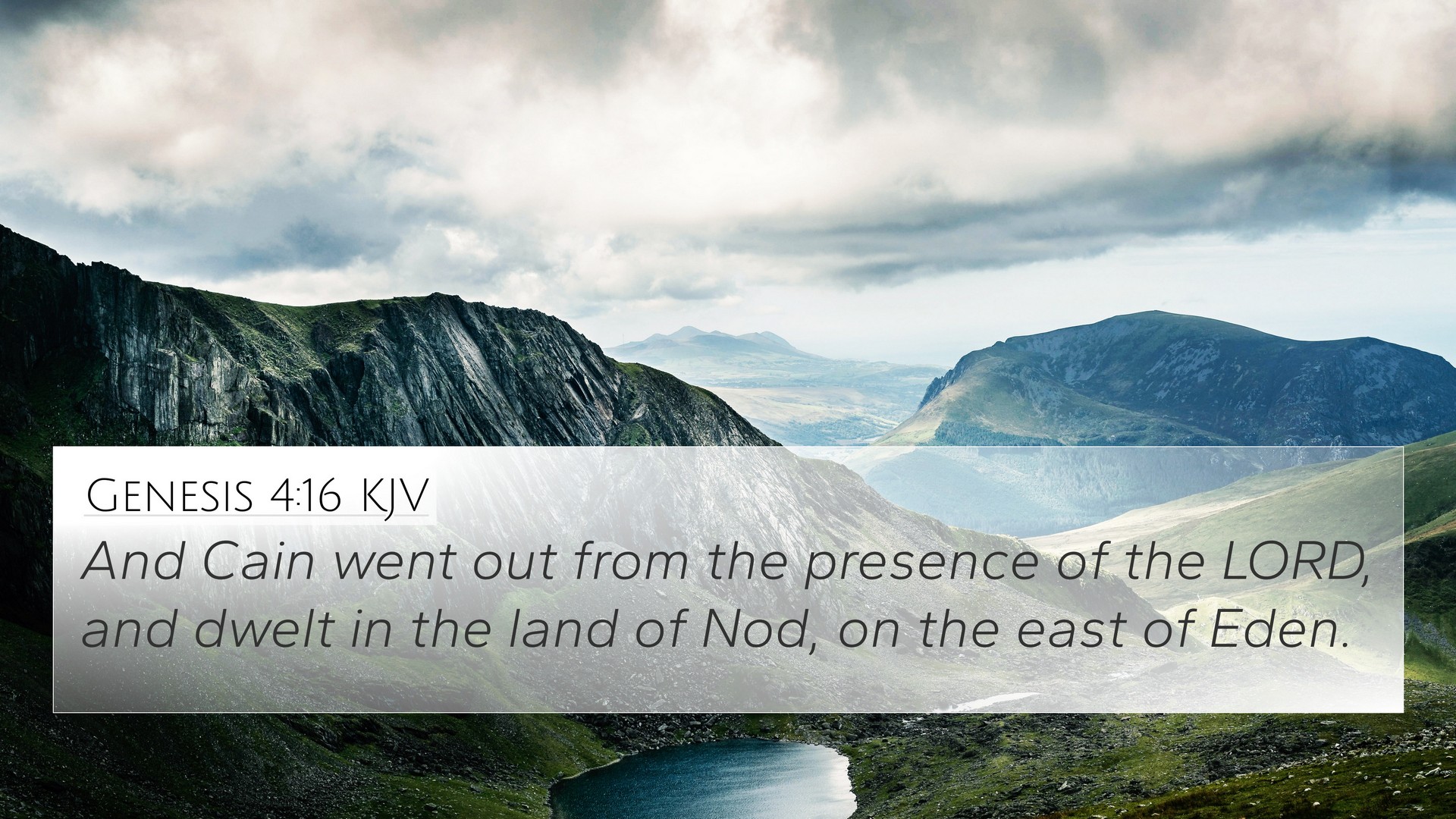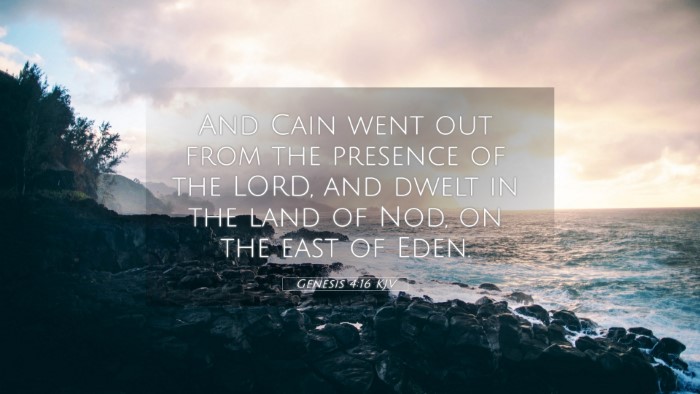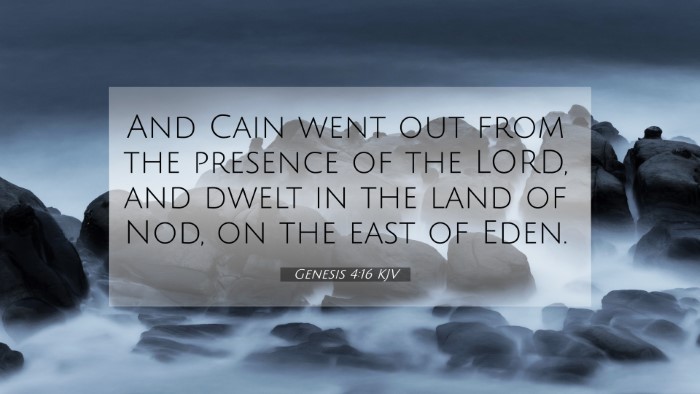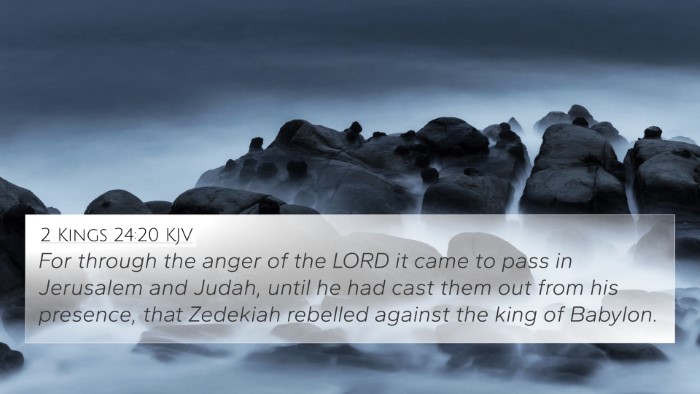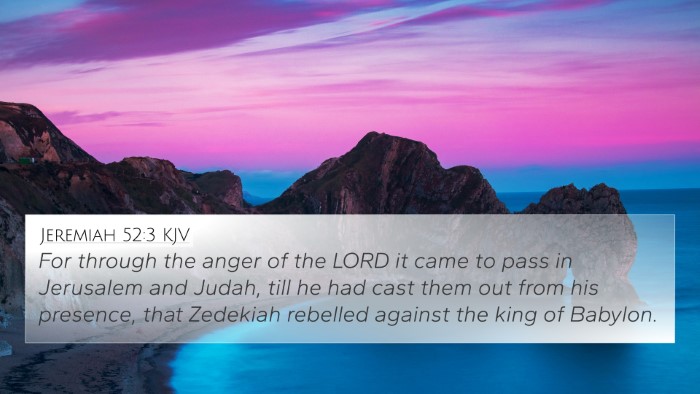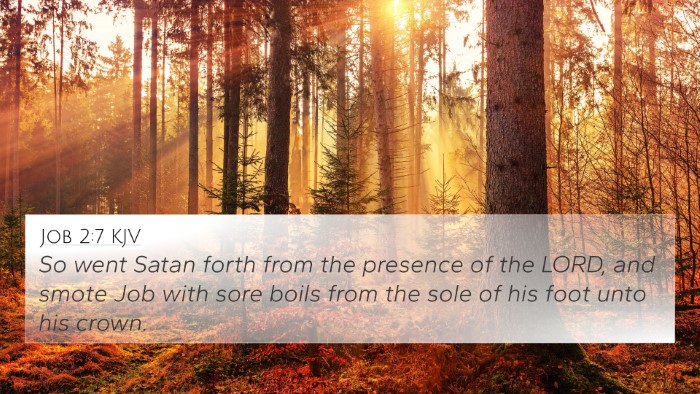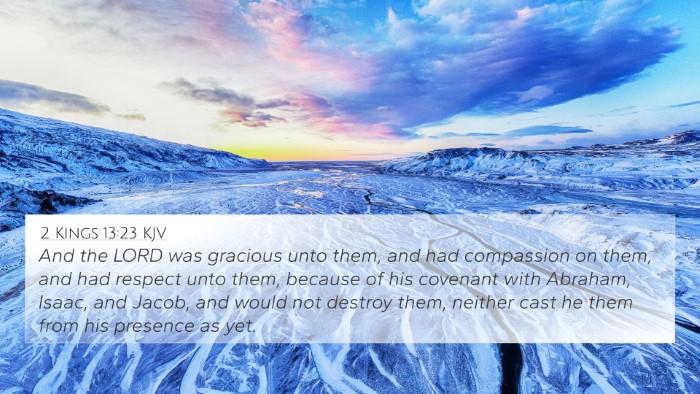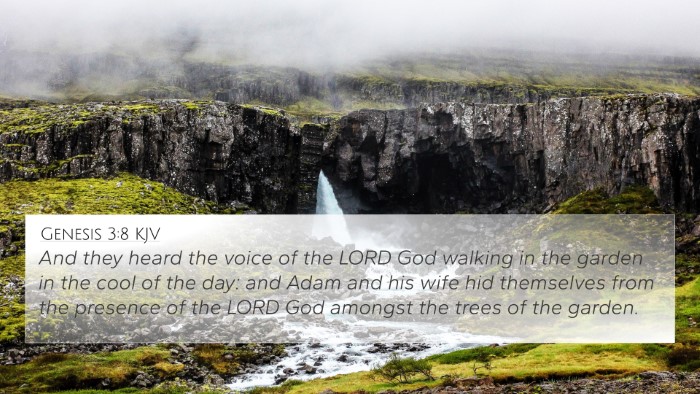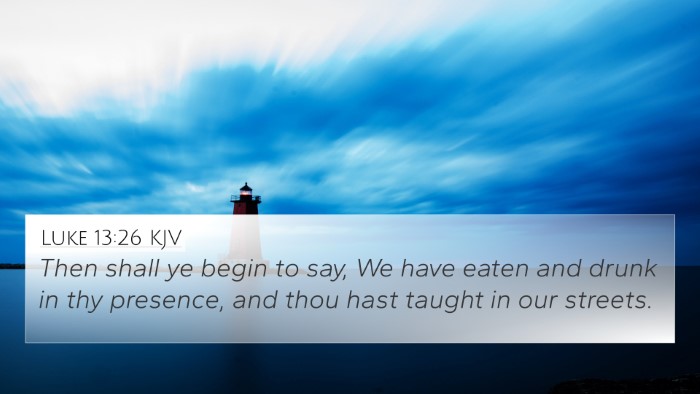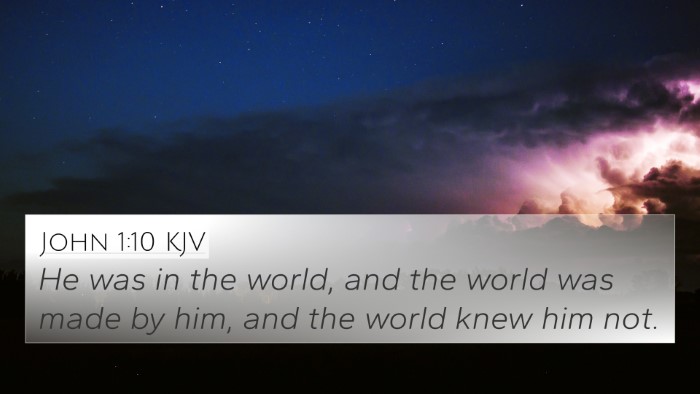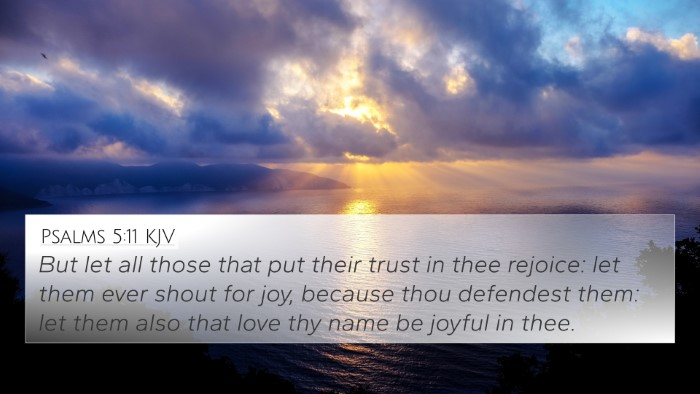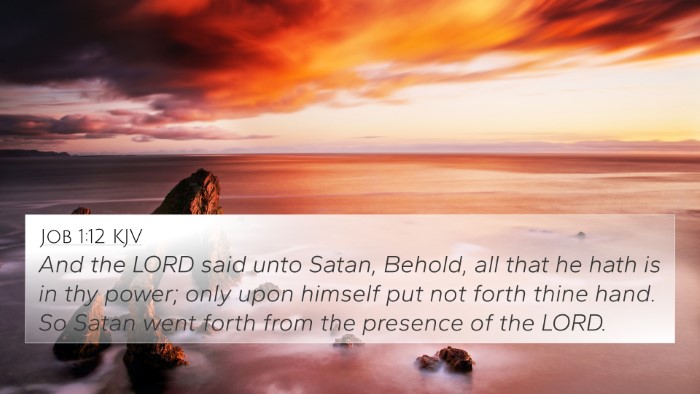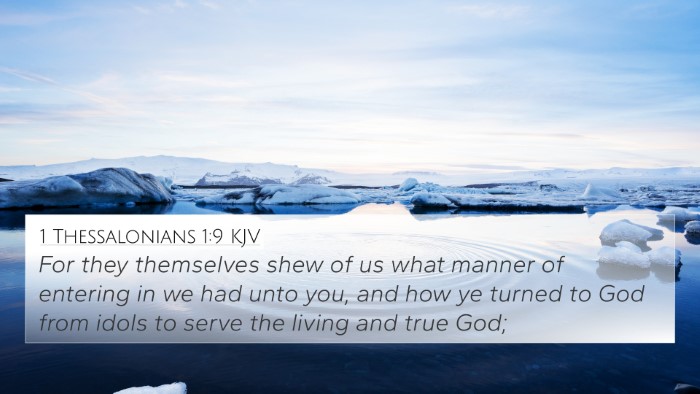Understanding Genesis 4:16
Genesis 4:16 states: "So Cain went out from the presence of the Lord and dwelt in the land of Nod, on the east of Eden." This verse marks a significant moment in the narrative of Cain, the firstborn son of Adam and Eve, after he has committed the grave act of murdering his brother Abel. In this exile, we witness the consequences of Cain's sin and the gravity of being cast away from God's presence.
Meaning and Interpretation
The implications of Cain's departure from God's presence is profound. Matthew Henry suggests that this act indicates a failure to repent and an embrace of his sinful state. Albert Barnes highlights the term "Nod," which means "wandering," pointing to the perpetual instability and restlessness that comes with sin. Adam Clarke elaborates on the significance of being "east of Eden," suggesting a place that is far removed from the closeness of God's intended human experience.
Thematic Connections
This verse can be viewed through various thematic lenses, reflecting on sin, judgment, and separation from God. Here are some thematic connections and insights:
- Sin and Consequences: Cain's sin leads to his exile, reminiscent of how Adam and Eve were cast out of Eden due to their disobedience (Genesis 3:24).
- Wandering and Restlessness: The land of Nod symbolizes wandering, paralleling the journeys of the Israelites in search of the Promised Land (Exodus 16:35).
- Separation from God: Cain's decision to leave signifies spiritual estrangement, a theme echoed throughout the Bible (Isaiah 59:2).
- Divine Judgment: Just as Adam faced consequences for his actions, so does Cain, highlighting the law of retribution seen later in biblical texts (Galatians 6:7).
- Protection and Mercy: Despite Cain's actions, God places a mark on him to protect him from being killed (Genesis 4:15), which underscores God's mercy even in judgment.
Bible Verse Cross-References
To fully appreciate Genesis 4:16, it is beneficial to look at other scripture that bears thematic or narrative similarities. Here are some relevant cross-references:
- Genesis 3:24: The expulsion of Adam and Eve from Eden, marking humanity's first separation from God.
- Genesis 4:12: God's pronouncement of Cain’s punishment, emphasizing the consequences of sin.
- Genesis 16:12: The description of Ishmael, another wanderer, illustrating themes of exile.
- Isaiah 59:2: The separation from God due to sin, analogous to Cain's journey away from divine presence.
- Hebrews 11:4: A reference to Abel, showing the continuing legacy of righteousness contrasted with Cain.
- Matthew 5:21-22: Jesus' teachings on anger and murder connect to Cain's sin, reflecting the moral implications of his actions.
- 1 John 3:12: A direct mention of Cain and his actions serves to teach about righteousness and love.
Connecting Themes Across the Bible
The story of Cain invites further comparative Bible verse analysis. Throughout scripture, we see recurring themes of sin, consequence, mercy, and redemption. In connecting these dots, we can observe:
- Old Testament Narratives: The story of Noah (Genesis 6:5-6) parallels the consequences of human sin leading to divine judgment.
- New Testament Reflections: The theme of exile resonates in the parable of the Prodigal Son (Luke 15:11-32), highlighting the journey away from and back to the Father.
- Prophetic Voices: Major and minor prophets emphasize returning to God, reinforcing the biblical motif of sin followed by exile (e.g., Jeremiah 3:12).
- Revelation and Restoration: Revelation 22:14-15 speaks about exclusion and the ultimate restoration of believers, highlighting the finality of God’s mercy and judgment.
Tools for Bible Cross-Referencing
For individuals looking to study Genesis 4:16 and its interrelatedness with other biblical texts, several tools and methodologies can enhance understanding:
- Bible Concordance: A useful resource for finding words and their occurrences across the scripture.
- Bible Cross-Reference Guide: Helps identify connections among various scriptures that share themes or concepts.
- Cross-reference Bible Study Techniques: Engage with Bible verses by studying contextual themes, such as sin and redemption.
Conclusion
Genesis 4:16 serves as a poignant reminder of the consequences of sin and the profound implications of being separated from God. Through exploring cross-references and thematic connections, we deepen our understanding of the narrative and its relevance in the grand scheme of biblical teachings. Not only does this verse fit within the broader story of the Bible, but it also opens avenues for personal reflection on the themes of mercy, judgment, and the quest for redemption.
